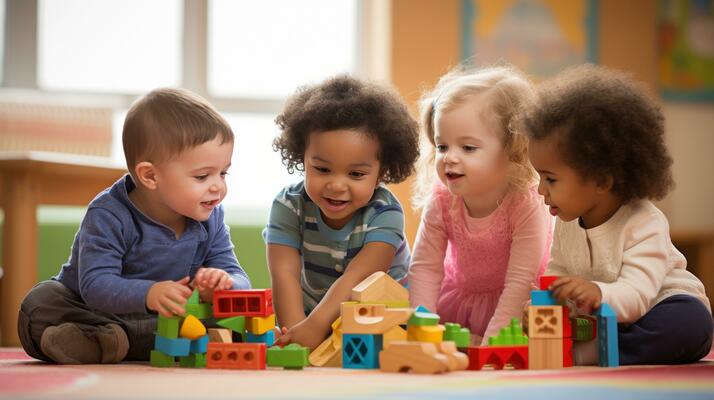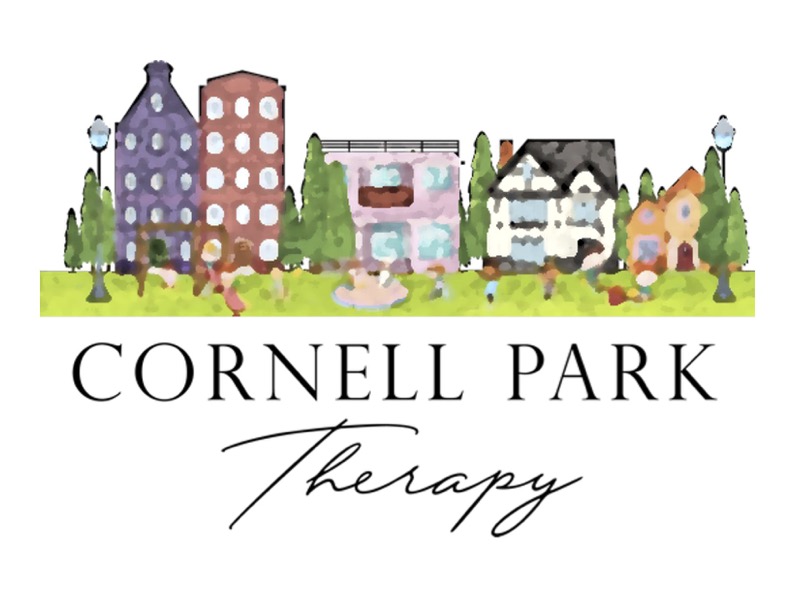
4 Very Important Reasons we offer Parent Training in Autism Treatment
Parents are the cornerstone of a child’s early life.
1.- Empowerment and Reduced Parental Stress:
Caring for a child with ASD can be demanding and stressful. Understanding ASD better and having concrete strategies to help their child can significantly increase parents’ sense of competence and confidence.
This empowerment can reduce parental stress, anxiety, and feelings of helplessness, which in turn creates a more positive and supportive family environment beneficial for the child’s development.
2.- Improved Parent-Child Relationship and Communication:
Training helps parents better understand their child’s unique communication style (verbal and non-verbal) and social understanding.
Learning specific interaction techniques can enhance positive interactions, strengthen the parent-child bond, and improve mutual understanding.
3.- Enhanced Collaboration with Professionals:
When parents are trained, they become more informed and active partners in their child’s treatment team.
They can provide valuable feedback to therapists about what works at home, ask more targeted questions, and contribute meaningfully to treatment planning, leading to a more cohesive and effective intervention plan.
4.- Early and Continuous Intervention:
Parent training can often be implemented earlier than some direct therapies, especially if there are waiting lists for services. It ensures that the child receives beneficial support as early as possible.
—
If you are interested in getting treatment for your child AND are interested in learning practical strategies and techniques to help your little one, then please feel free to book A FREE 15 MINUTE CONSULTATION TO DISCUSS YOUR NEEDS WITH ONE OF OUR CLINICAL SUPERVISORS.
Learn More
4 Additional Game-changing Reasons we offer Parent Training in Autism Treatment
Parents are the First and Most Important Teachers to their Children
Parent training is considered fundamental to the treatment of children on the autism spectrum for several interconnected reasons:
1.- Consistency and Generalization of Skills:
- Children with ASD often struggle to apply skills learned in one setting (like a therapy clinic) to other settings (like home or school). This is known as generalization.
- Parents spend the most time with their child across various natural environments (home, community).
- When parents are trained in the therapeutic strategies used by professionals, they can then consistently implement these techniques during daily routines and interactions. This continuous reinforcement helps the child practice and generalize communication, social, and behavioral skills much more effectively than relying solely on limited therapy hours.
2.- Increased Learning Opportunities:
- Trained parents can turn everyday activities (meals, playtime, chores, outings) into therapeutic learning opportunities.
- This significantly increases the intensity and frequency of intervention without necessarily adding more formal therapy sessions, maximizing the child’s progress.
3.- Tailoring Strategies to the Individual Child and Home Environment:
- Parents have intimate knowledge of their child’s specific strengths, challenges, preferences, and triggers within the unique context of their family and home life.
- Parent training empowers them to adapt and apply therapeutic strategies in ways that are most relevant and effective for their child and feasible within their family’s routines and resources.
4.- Effective Management of Challenging Behaviors:
- Parent training programs often focus on understanding the function (the “why”) behind challenging behaviors (e.g., meltdowns, aggression, repetitive actions).
- Parents learn proactive strategies to prevent these behaviors and responsive strategies to respond effectively and safely when they do occur, leading to a reduction in frequency and intensity over time.
—
In essence, parent training transforms parents from passive observers into active, informed agents in their child’s therapy. It mobilizes the parents’ unique position and relationship with the child to create a consistent, supportive, and skill-building environment that extends far beyond formal therapy sessions, making it a cornerstone of effective autism intervention.
Learn More
5 Important Life Skills for People Living with Autism
Living with autism can present unique challenges, but developing certain life skills can significantly enhance independence, social interactions, and overall quality of life. Here are 5 essential life skills for individuals with autism:
Communication Skills:
- Verbal and Non-Verbal Communication: Learning to express needs, feelings, and thoughts clearly, either through speech, sign language, or communication devices.
- Social Cues: Understanding body language, facial expressions, and tone of voice.
Social Skills:
- Building Relationships: Making and maintaining friendships, understanding social norms, and engaging in social activities.
- Conflict Resolution: Handling disagreements and resolving conflicts in a constructive manner.
Self-Care and Hygiene:
- Personal Hygiene: Regular bathing, grooming, dental care, and dressing appropriately for the weather.
- Health and Nutrition: Understanding and maintaining a balanced diet, regular exercise, and recognizing when to seek medical help.
Daily Living Skills:
- Household Chores: Cleaning, cooking, doing laundry, and basic home maintenance.
- Money Management: Budgeting, saving, understanding the value of money, and making purchases.
Time Management:
- Scheduling: Creating and following a daily routine, prioritizing tasks, and managing time effectively.
- Punctuality: Understanding the importance of being on time for appointments, work, and social events.
At Cornell Park Therapy, we have tailored interventions and programs that can help teach any of the above skills. Please call us today to discuss your needs.
Learn More
Why is Teaching Social Skills so Important?
Here are some reasons why it is important for a child with Autism to learn Social Skills:
1. Improving Communication: Children with autism often struggle with communication, they may not know what to say or may not understand the way other communicate. Social skills training helps them learn how to express themselves more effectively and understand others’ communication cues, which can significantly enhance their interactions with peers and adults.
2. Building Friendships: Developing social skills enables children with autism to form and maintain friendships. This is important for their emotional and psychological well-being, as positive social interactions contribute to a sense of belonging and self-esteem.
3. Enhancing Understanding of Social Rules and Norms: Social skills training teaches children with autism about social rules, norms and expectations, such as taking turns in conversation, understanding personal space, and recognizing and responding appropriately to others’ emotions. This understanding helps them navigate various social situations more successfully.
4. Reducing Behavioral Issues: Social skills training can help reduce inappropriate behaviors that stem from misunderstandings or frustration in social contexts. By learning appropriate ways to interact and communicate, children with autism are less likely to experience anxiety or meltdowns in social settings.
5. Increasing Independence: As children with autism develop better social skills, they gain more independence. They become more capable of handling social interactions in school, community activities, and eventually in the workplace, leading to a higher quality of life.
6. Academic Success: Good social skills are linked to better academic performance. Children who can interact well with their peers and teachers are more likely to participate in classroom activities, collaborate on group projects, and seek help when needed.
7. Building Confidence: Mastering social interactions boosts the confidence of children with autism. When they feel more competent in social situations, they are more likely to engage in a wider range of activities and pursue their interests.
8. Preventing Social Isolation: Without adequate social skills, children with autism are at risk of social isolation. Social skills training helps them connect with others, making it less likely that they will feel lonely or excluded.
Overall, social skills training equips children with autism with the tools they need to navigate a social world more comfortably and effectively, enhancing their overall development and quality of life.
Learn More
6 More Ways to Help Teach Social Skills to Kids with Autism
If you read our previous post on 6 Ways to Help Teach Social Skills to Kids with Autism and found it useful, you may want to keep reading. Here are 6 More Ways to Help Teach Social Skills to Kids with Autism.
- Joint Attention Skills: Teaching joint attention skills, such as sharing attention and focus with others, can improve social interactions and enhance the child’s ability to engage in reciprocal play. Please do not force eye contact. Some children have trouble with eye contact, and asking them to look into a person’s eyes is not the best approach. As long as they acknowledge the person by looking their way or looking at some other part of the face, that’s great!
- Emotional Regulation: Helping children with autism understand and regulate their emotions is essential for social success. Techniques like emotional labeling and mindfulness can be beneficial.
- Social Narratives: Social narratives or stories that explain social situations and appropriate behaviors can be used to prepare children for social interactions and reduce anxiety.
- Social Playgroups and Inclusion: Encouraging children with autism to participate in social playgroups and inclusive settings can provide opportunities for social practice and interaction with peers.
- Parent and Caregiver Training: Teaching parents and caregivers strategies to support social development at home can reinforce the skills learned in therapy or school settings.
- Individualize Your Approach: Recognize that every child with autism is unique, and interventions should be tailored to their specific strengths and challenges. Assess their individual needs and preferences to develop effective strategies.
Once again, it’s important to note that interventions should be evidence-based and conducted by trained professionals who specialize in autism spectrum disorders. Additionally, consistent and ongoing support is often necessary to help children with autism generalize their social skills across various settings and contexts.
Please enquire about our Early Learner Play Groups: We teach parents how to teach communication, play and social skills to young children with Autism.
Learn More
6 Ways to Help Teach Social Skills to Kids with Autism
Teaching social skills to young children with autism is crucial for their social and emotional development. Research findings suggest several effective strategies and principles for helping children with autism improve their social skills:
- Early Intervention: Early intervention is key to improving social skills in children with autism. Starting interventions as early as possible increases the likelihood of positive outcomes.
- Begin wtih Structured and Predictable Environments: Providing a structured and predictable environment helps children with autism feel more comfortable and secure, which can facilitate social interactions.
- Visual Supports: Visual supports, such as visual schedules, social stories, and visual cues, can help children with autism better understand social situations and expectations.
- Social Skills Training: Targeted social skills training programs can teach specific social skills through explicit instruction and practice. These programs often use techniques like role-playing, modeling, and video modeling.
- Peer-Mediated Interventions: Involving typically developing peers in social activities can help children with autism learn social skills in a naturalistic setting. These peer interactions can promote socialization and inclusion.
- Communication Training: Many children with autism struggle with communication, which can hinder social interactions. Speech and language therapy can help improve communication skills, facilitating social engagement.
It’s important to note that interventions should be evidence-based and conducted by trained professionals who specialize in autism spectrum disorders. Additionally, consistent and ongoing support is often necessary to help children with autism generalize their social skills across various settings and contexts.
Please enquire about our Early Learner Play Groups: We teach parents how to teach communication, play and social skills to young children with Autism.
Learn More
Parent Training in ABA: An Important Treatment Component
We offer Parent Training at no extra cost because Parent Training is a very important part of quality ABA (Applied Behavior Analysis) Services (Albone-Bushnell, 2014).
Parent Training has many benefits for parents, children, and their families. Parent Training offers parents the opportunity to receive guidance and support from a specialist so they can help teach their children important life-long skills such as:
Language and Communication skills
Self-care skills
Play skills
Social skills
Self-regulation skills
Academic skills
Executive skills
When a parent learns how to help their children, children grow up with an person that will understand them best, and be better equipped to help them.
Parent Training helps parents learn effective ways to Improve and Support:
Their child’s treatment outcomes
Their child’s ability to learn new skills
Their child’s success at school
Their child’s ability to become more independent
Their child’s and family’s quality of life
Their child’s growth and development
Their own ability to teach important skills such as Language and Communication
Their own relationship with their child
Parents also report feeling more confident in their parenting and report that having a professional they can consult with when they are not sure about what to do, helps them become more effective parents.
Research also shows that ABA Parent Training can lead to parents feeling less stress in their daily life and improvements in their overall family well-being (Koegel, Bimbela, & Schreibman, 1996).
Other research (Matson, Mahan, & Matson, 2009) has shown that Parent Training can help children who have the following conditions:
ASD (autism spectrum disorder)
ADHD (Attention Deficit Hyperactivity Disorder)
Other behavioural or communication difficulties
Parent Participation is Essential
Children with ASD require intensive and systematic intervention to help them achieve their potential. Parents are the core of this intensive training because they are with their child the most and have the most influence on their children. For these reasons, parent involvement and training are an essential part of ABA therapy. When parents are active participants in their child’s treatment, the child is more likely to be successful.
We offer Parent training at no extra cost. Parent training is customized to meet the needs of your child and family. We work to help you achieve your goals – such as communication, self-help skills (like getting dressed and potty training), and social skills.
Further reading:
Albone-Bushnell, R. (2014). A list of core skills and knowledge necessary for parents of children birth to five years old with autism, as prioritized by practitioners with a behavioral perspective (Order No. 3689092). Available from Education Collection. (1678945631). Retrieved from https://search.proquest.com/docview/1678945631?accountid=166077
Crockett, J. L., & Fleming, R. K.(2007). Parent training: Acquisition and generalization. Research in Developmental Disabilities, 28, 23-36.
Gresham, F. M., Beebe-Frankenberger, M. E., & MacMillan, D. L. (1999). A selective review of treatments for children with autism: Description and methodological considerations. School Psychology review, 559-575.
Learn More